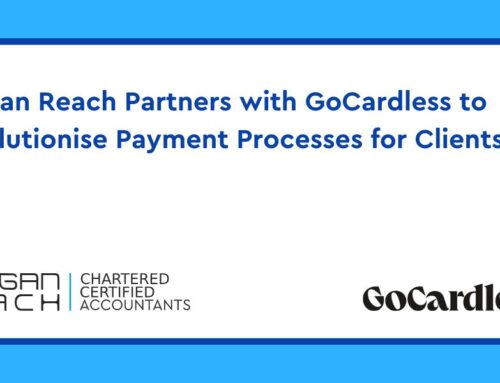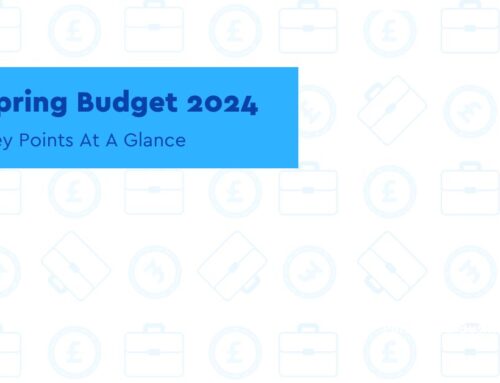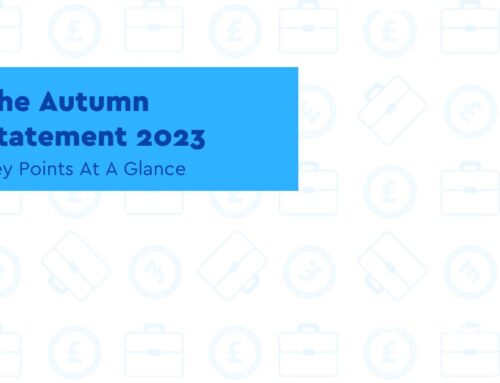News – PAYE
PAYE Settlement Agreements deadline
Key Points
- The expenses or benefits you include in a PAYE Settlement Agreement (PSA) must be minor, irregular or impracticable
- You must pay any tax and National Insurance owed under a PSA by October 22 after the tax year it applies to
The deadline for applying for a PAYE Settlement Agreement (PSA) is July 5 following the first tax year it applies to, meaning there is just over a month left in respect of the tax year 2021 to 2022.
A PSA allows you to make one annual payment to cover all the tax and National Insurance due on minor, irregular or impracticable expenses or benefits for your employees.
If you get a PSA for these items you will not need to:
- Put them through your payroll to work out tax and National Insurance
- Include them in your end-of-year P11D forms
- Pay Class 1A National Insurance on them at the end of the tax year (you pay Class 1B National Insurance as part of your PSA instead)
Some employee expenses are covered by exemptions (which have replaced dispensations). This means you will not have to include them in your end-of-year reports.
You must pay any tax and National Insurance owed under a PSA by October 22 after the tax year the PSA applies to (October 19 if you pay by post). You may be fined or charged interest if you do not pay or your payment is late.
If HMRC approves your PSA before the start of a tax year, you can include any expenses and benefits contained in the agreement.
If they approve it after the start of the tax year, you might need to report some items separately.
If your PSA is approved before April 6 you must use form P11D to report expenses and benefits provided before the agreement date that you:
- Have already included in your employee’s tax code
- Included (or should have included) in your employee’s PAYE tax and National Insurance deductions
If your PSA is approved between April 6 and July 5 you must use form P11D to report expenses and benefits provided during the tax year that you:
- Have already included in your employee’s tax code
- Included (or should have included) in your employee’s PAYE tax and National Insurance deductions
What’s included
The expenses or benefits you include in a PAYE Settlement Agreement (PSA) must be minor, irregular or impracticable.
Minor
Examples of minor benefits and expenses include:
- Incentive awards, for example for long-service
- Telephone bills
- Small gifts and vouchers
- Staff entertainment, for example a ticket to an event
- non-business expenses while travelling overnight on business that are over the daily limit
You do not need to include trivial benefits in your PSA.
Irregular
Irregular benefits and expenses are things that are not paid at regular intervals over the course of a tax year, for example weekly or monthly. They’re also things that employees do not have a contractual right to. Examples of irregular expenses and benefits include:
- Relocation expenses over £8,000 (these are tax-free below £8,000)
- The cost of attending overseas conferences
- Expenses of a spouse accompanying an employee abroad
- Use of a company holiday flat
Impracticable
Impracticable expenses and benefits are things that are difficult to place a value on or divide up between individual employees. Examples of impracticable expenses and benefits include:
- Staff entertainment that is not exempt from tax or National Insurance Contributions
- Shared cars
- Personal care expenses, for example hairdressing
What’s not included
You cannot include wages, high-value benefits like company cars, or cash payments such as:
- Bonuses
- Round sum allowances
- Beneficial loans in a PSA
If you apply after the start of the tax year, there are extra restrictions on what you can include.
This article was sourced from gov.uk: https://www.gov.uk/paye-settlement-agreements
News – Cost of Living
Cost of living help: £400 energy bill discount with extra £650 for low-income homes
Key Points
- The new energy bill discount will replace the previously announced £200 discount on energy bills
- The Chancellor also announced a £500 million increase for the Household Support Fund
Every household in Britain will receive a £400 discount on energy bills from the government in October, with no requirement to pay the money back.
Millions of vulnerable households will also receive hundreds of pounds in extra government support to ease the financial pain of the soaring cost of living.
Almost 8 million families will receive help worth £1,200, including a ‘cost-of-living’ payment of £650, under a £15bn package of measures, announced by Chancellor Rishi Sunak.
The one-off cost of living payment will be made to low-income households on Universal Credit, Tax Credits, Pension Credit and legacy benefits. There will be separate one-off payments of £300 to pensioner households and £150 to individuals receiving disability benefits.
The new energy bill discount will replace the previously announced £200 discount on energy bills, which had a requirement that households repay the benefit.
The chancellor also announced a £500 million increase for the Household Support Fund, delivered by Local Authorities, extending it from October until March 2023.
The cost of living statement also gave details on a ‘windfall tax’ on energy companies to pay for the measures.
The temporary levy will be a rate of 25% and is expected to raise around £5bn.
The news comes as energy bills could rise by a further £800 in the Autumn, according to energy regulator Ofcom, with the energy price cap predicted to increase up to £2,800 in October.
The move would push 12 million homes into fuel poverty, the watchdog warned earlier this week.
Rishi Sunak said: “We know that people are facing challenges with the cost of living and that is why today I’m stepping in with further support to help with rising energy bills.
“We have a collective responsibility to help those who are paying the highest price for the high inflation we face. That is why I’m targeting this significant support to millions of the most vulnerable people in our society. I said we would stand by people and that is what this support does today.
“It is also right that those companies making extraordinary profits on the back of record global oil and gas prices contribute towards this. That is why I’m introducing a temporary Energy Profits Levy to help pay for this unprecedented support in a way that promotes investment.”
This article was derived from Your Money: https://www.yourmoney.com/household-bills/cost-of-living-help-400-energy-bill-discount-with-extra-650-for-low-income-homes/
News – Pensions
UK minister for pensions promises reform
Key Points
- The DWP will consult with businesses on ways to reform pension costs and charges
- It was also announced they will look at how the UK can introduce a brand new type of pension
Minister for pensions and financial inclusion Guy Opperman has pledged to launch two consultations on the future of pensions in the UK.
Announced yesterday (23 May), Opperman said that the Department for Work and Pensions (DWP) would consult with businesses on ways to reform pension costs and charges, and how the UK can introduce a brand new type of pension.
The first consultation, due in the summer, will ask experts about decumulation (converting savings into income at retirement) and how the government can implement Collective Defined Contribution (CDC) pensions, where employees’ contributions are pooled and the investment benefits are shared.
The second will, due in November, will look at how government can ensure consumers are getting value for money with pensions, ahead of potential reforms to the current system of separate costs and charges.
CDC pensions would be entirely new to the UK, and will only be possible once parliament has passed a legal framework for the pension in August 2022.
Opperman said: “With CDCs, we genuinely are reinventing the wheel, and I want to get it right first time.”
According to research by management consultancy AON Hewitt, CDC pensions are more stable than the most common form of pension, the defined contribution (DC) pension, thanks to the pool of resources.
Unlike with defined benefit (DB) pensions, employers do not have to guarantee the pensions’ payouts.
For the Royal Mail, this guarantee led to a fierce dispute between the company and its employees over their pensions when it tried to close part of its DB pension scheme over what it deemed unaffordable annual costs of £1.26 billion in 2018.
While the dispute has now been settled, both parties have since driven the UK’s efforts to set up CDC pensions in the UK.
The second consultation will examine value for money in the pensions sector ahead of potential reforms.
Opperman said: “Outcomes for the consumer are what I am most interested in, in particular how this can be measured on a long and short-term basis.”
He argued that there should be a single cost and charge, adding that he wanted it to happen in the next five to 10 years.
He said: “It cannot be sustainable that people are unable to ascertain the nature of their pension investment on a long-term basis. It is the only product in the entirety of the UK where you cannot do this.”
Liz Sebag-Montefiore, director and co-founder of HR consultancy 10Eighty, told HR magazine that many in the UK are simply do not understand the pensions system, national insurance, or benefits.
She said: “A lot of employees don’t understand the scheme they are paying into, who pays what and the expected end benefits.
“Pension providers and employers could do more to educate employees as to the benefits of contributing to a pension, employees need to see what their monthly payments will buy them at retirement.”
This article was sourced from HR Magazine: https://www.hrmagazine.co.uk/content/news/uk-minister-for-pensions-promises-reform
News – R&D Tax Credits
HMRC suspends payment of some R&D tax credits
Key Points
- The The majority of R&D tax credit claims will not be affected
- However, claimants are warned there will be delays to the usual processing times
HMRC has stopped its payment of some research and development (R&D) tax credits while it investigates irregular claims.
The majority of R&D tax credit claims will not be affected, but claimants are warned there will be delays to the usual processing times while HMRC tries to prevent abuse of the relief.
Research and development (R&D) tax credits are a government incentive designed to reward UK companies for investing in innovation. They are a valuable source of cash for businesses to invest in accelerating their R&D, hiring new staff and ultimately growing.
An HMRC spokesperson said: “We have paused some development tax credit payments while we investigate some irregular claims.
“The majority of R&D relief claims are unaffected but there will be some delays to our usual processing times. This is to ensure we prevent abuse of the relief”.
HMRC has also requested that claimants do not contact the R&D helpline or mailbox to chase their claims.
Companies should review their online accounts for updates on the status of their claims, while the tax authority also reminded claimants to complete all aspects of the R&D section of the corporation tax return (CT600).
Submitting additional information to support any claim, such as an R&D report, will also help HMRC process claims quicker.
Talk to us about your R&D claim.
Latest Snippets
New HMRC Advisory Fuel Rates published
HMRC has published new Advisory Fuel Rates (AFRs) effective from next Wednesday (June 1) for company car drivers claiming back fuel costs from their employer.
Announced as pump prices continue to hit new highs, the new AFRs see petrol rates hike up 1ppm for smaller engines, 2ppm for midsize and 3ppm for larger engines.
Diesel rates increase by 2ppm for smaller engines and 3ppm for midsize and larger ranges.
For LPG-fuelled vehicles, rates go up by 1ppm across all three categories. Meanwhile, the Advisory Electricity Rate (AER) for reimbursing electric company car mileage remains at 5ppm despite rising energy prices. This follows the 25% increase from 4ppm in the December 1, 2021 rate.
View the latest rates here
Final deadline for applying for the Recovery Loan Scheme
In the Autumn Budget update, Chancellor Rishi Sunak confirmed the extension of the Recovery Loan Scheme (RLS) in the Treasury’s Autumn Budget. The RLS will run until June 30, 2022.
The scheme is designed to help businesses manage cash flow, investment and growth post-lockdown. The finance can be used for any business purpose, such as hiring new staff, boosting cash flow, buying more stock to meet an increase in demand and investing in new equipment for growth.
The scheme provides the lender with a government-backed guarantee against the outstanding balance of the facility. The borrower always remains 100% liable for the debt.
Get In Touch
At Morgan Reach, we understand every business needs a little help now and again-especially when it comes to the financial side of things. Therefore, to help our clients and visitors we endeavour to cover as much of the business news as possible. If you are self-employed or run a business and need assistance and advice on how these news could make a difference to you or your business, feel free to get in touch with the experts at Morgan Reach. Our business growth experts at Morgan Reach will guide you through what support is available for you or your business as well as the latest news that may affect you.







